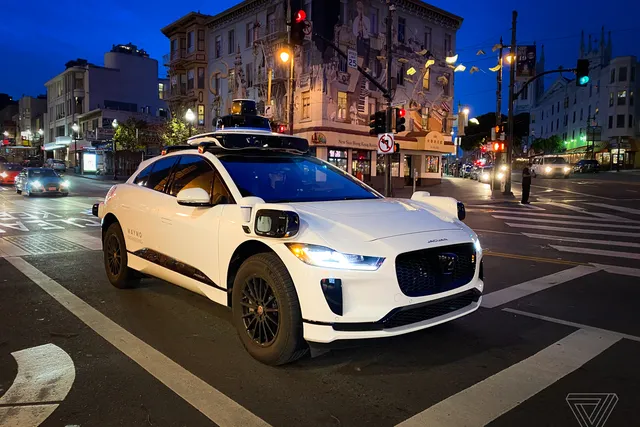Waymo is issuing a voluntary software recall after one of its driverless vehicles collided with a telephone pole in Phoenix, Arizona, last month, the company said. The vehicle was damaged, but no passengers or bystanders were hurt in the incident.
The company is filing the recall with the National Highway Traffic Safety Administration (NHTSA) after completing a software update to 672 vehicles — the total number of driverless-capable vehicles in Waymo’s fleet. The update corrects an error in the software that “assigned a low damage score” to the telephone pole, and updates its map to account for the hard road edge in the alleyway that was not previously included.
This is Waymo’s second recall ever, after two minor collisions prompted a recall of 444 vehicles last February. And it comes at a time of increased regulatory scrutiny of the driverless vehicle industry, in which federal investigators are probing almost all the major companies operating autonomous vehicles in the US.
The incident that prompted the latest recall took place on May 21st in Phoenix. According to local reports, an unoccupied Waymo vehicle was driving to a passenger pickup location through an alley that was lined on both sides by wooden telephone poles. The poles were not up on a curb but level with the road and surrounded with longitudinal yellow striping to define the viable path for vehicles. As it was pulling over, the Waymo vehicle struck one of the poles at a speed of 8mph, sustaining some damage, the company said.
:format(webp)/cdn.vox-cdn.com/uploads/chorus_asset/file/25485764/ac8f73b3_7499_4f11_bbc2_fa99c8bdc645_1920x1080.jpg)
Emergency responders inspecting a Waymo robotaxi after it crashed into a telephone pole. Image: 12News
The passenger who was waiting for the vehicle didn’t witness the crash but did recall hearing it. “It never made it to pick us up,” Jericka Mitchell told 12News.
Waymo’s recall isn’t a recall in the traditional sense. It’s not taking its vehicles off the road for repairs or maintenance. Much like Tesla’s software recalls, the company can simply push an over-the-air update to all the affected vehicles and then continue to operate on public roads after the new software and maps have loaded.
“We have already deployed mapping and software updates across our entire fleet”
“We have already deployed mapping and software updates across our entire fleet, and this does not impact our current operations,” Waymo spokesperson Katherine Barna said in a statement. “As we serve more riders in more cities, we will continue our safety first approach, working to earn trust with our riders, community members, regulators, and policymakers.”
Waymo is trying to be proactive about its safety — especially as it relates to incidents in which its own vehicles are clearly at fault. The company is under investigation by NHTSA for over two dozen incidents involving its driverless vehicles, including several “single-party” crashes and possible traffic law violations. Several incidents involved crashes with stationary objects, much like the May 21st crash with the telephone poll.
A number of pedestrians and other bystanders have been injured by driverless vehicles, resulting in more regulatory scrutiny and public ire. Meanwhile, the government is requiring more data from companies than ever before, especially around crashes, in order to determine whether the industry’s safety claims live up to their hype. And the companies are finding that the proliferation of smartphones with cameras is working against them, as more videos of their vehicles behaving unpredictably or dangerously go viral.





